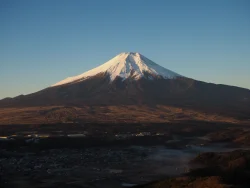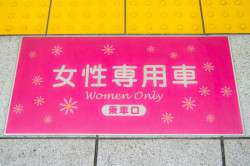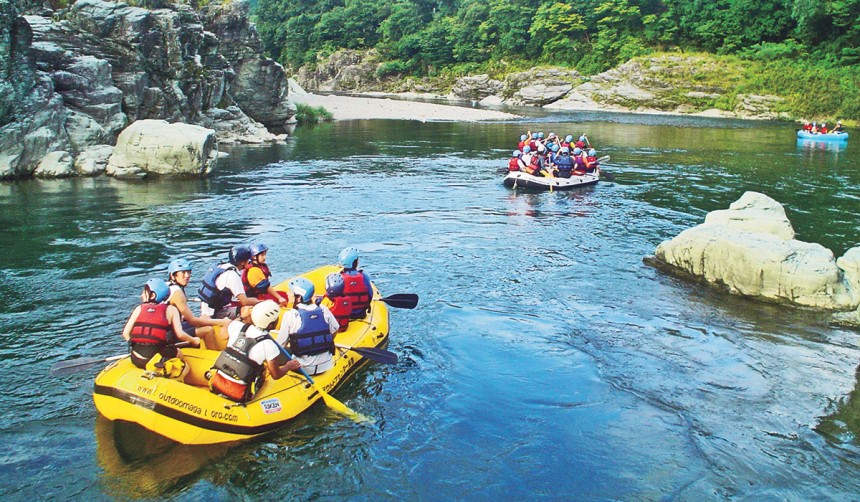
June 30, 2015
Hiking and Camping Near Tokyo
Escaping the city and back to the land
Once the summer humidity hits the city, there’s no better place to be than out of it. Luckily, it’s not too tricky to escape Tokyo, whether for a day’s hike, a camping adventure, or a combination of both.
Hiking
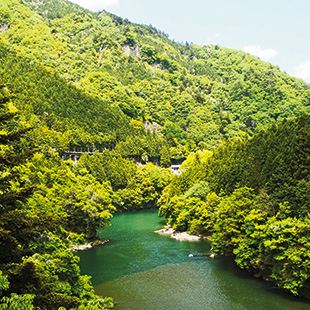
(Photo by Kate Riseley)
From Mount Takao and connecting trails in Meiji-no-Mori Takao Quasi-National Park to Mounts Mitake, Otake, and the Three Peaks of Takamizu in the Okutama area of Chichibu-Tama-Kai National Park, one could easily fill a summer’s worth of weekends without going too far afield.
Most are easy day trips, though some, like Mount Kumotori—the tallest mountain in the Greater Tokyo Area at 2,017 meters—are better done in two. Camp in designated areas, in emergency huts, or “glamp” at mountain lodges along the trails.
Tanzawa-Oyama Quasi-National Park in Kanagawa Prefecture offers another seemingly endless supply of hiking trails near Tokyo. Mount Oyama is best known, but options abound from Yamakita, Hadano, Minami-Ashigara, and other cities within the park. If you’re looking for height and solitude, aim for a two-day Mount Tanzawa/Hiru-ga-take—just be prepared for a long haul back to civilization and infrequent buses.
Those seeking bucket list-worthy hikes should head to Yakushima National Park on Yakushima, a subtropical island in southwestern Japan, by air or boat from various locations. Hikes through the Oku-dake and the Mae-dake ranges will bring you into contact with wild deer and monkeys, and the lush forests that inspired Hayao Miyazaki’s Princess Mononoke. Get around by bus, taxi, rental car, scooter, or bike.
Info
- Mount Takao. Nearest station: Takaosanguchi (Keiō Takao Line).
- Three Peaks of Takamizu. Nearest station: Mitake (Ōme Line).
- Mount Kumotori. Nearest station: Chichibu (Seibu Line, bus to Mitsumine Shrine).
- Mount Oyama. Nearest station: Isehara (Odakyu Line, bus to Oyama Cable Car).
- Mount Tanzawa, Hiru-ga-take. Nearest station: Shibusawa (Odakyu Line, bus to Okura).
Camping
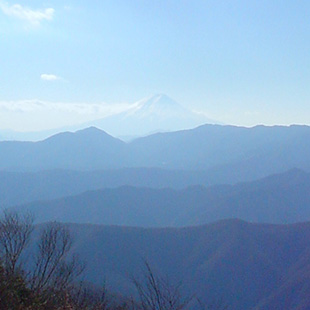
(Photo by Kate Riseley)
Nagatoro Auto Camp-jo, located not far from Nogami Station, sits on the bank of the Arakawa River deep in the forested hills of Chichibu. Swim, hike, river raft through Nagatoro Gorge—or just sit back and listen to the cicadas.
Leave the mainland and sail away to the Izu Islands, where tents can be pitched at places like the Tokyo Metropolitan Takou-wan Park Family Campsite on Kozushima, roughly four hours by high-speed boat from Tokyo’s Takeshiba Pier; and Habushiura Campsite on Niijima, roughly three hours by high-speed boat from Takeshiba Pier. Campers can enjoy pristine beaches, hiking, cycling, surfing, and more.
For cool, dry air, head west. The Karuizawa area is full of campgrounds, such as Rising Field Karuizawa and Yukawa Campground. River play, onsen, hiking, cycling, and fruit picking are some activities available in the Karuizawa area.
Info
- Nagatoro Auto Camp-jp. Nearest station: Nogami (Chichibu Railway). www.nagatoro-camp.com (Japanese only)
- Tokyo Metropolitan Takou-wan Park Family Campsite. www.kouzushima.org
- Habushiura Campsite. http://meturl.com/niijimavillage
- Rising Field Karuizawa. Nearest station: Karuizawa (Hokuriku Shinkansen). www.rising-field.com (Japanese only)
- Yukawa Campground. Nearest station: Karuizawa (Hokuriku Shinkansen). www.facebook.com/yukawa.campground (Japanese only)
- Karuizawa local guide. http://meturl.com/karuizawamap
For detailed trail information and plenty of ideas, check out http://ridgelineimages.com and http://japanhike.wordpress.com.
Safety first
- Prepare for any weather with rain gear, a lightweight jacket, extra socks, sturdy hiking shoes, a hat, and sunscreen.
- Insects can spread disease, so wear long sleeves and pants, use a DEET or a picaridin-based insect repellant, and consider permethrin-treated clothes if hiking where tick-borne severe fever with thrombocytopenia syndrome (SFTS) has been found.
- Not all trails and lodges have water or snacks, so pack enough to get through your planned hike with some left over.
- A whistle, emergency blanket, and basic first aid kit should be part of your pack.
- Cell phone coverage is spotty to non-existent in the mountains.
- Tell someone where you’re going and when you expect to return, and stick to it. Also have a plan in place if you don’t arrive home by a certain time.
